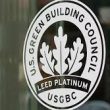The International Sustainability Standards Board (ISSB) has published an Exposure Draft proposing targeted amendments to its IFRS S2 Climate-related Disclosures, in a move aimed at easing the application of greenhouse gas (GHG) emissions reporting requirements.
The proposed changes, prompted by market feedback, are intended to address specific application challenges faced by preparers without reducing the quantity or quality of information disclosed to investors. The amendments reflect the ISSB’s ongoing commitment to support the effective implementation of its Standards while maintaining the decision-usefulness of disclosures.
The Exposure Draft will be open for public comment for a 60-day period, closing on 27 June 2025.
Sue Lloyd, Vice-Chair of the ISSB, said: “It is the role of a responsible standard-setter to listen to market feedback from the earliest stages of implementation. We have sought to support preparers without causing significant disruption, while ensuring that the information remains valuable for investors. Proposing amendments to a relatively new Standard is not a decision taken lightly — it reflects careful consideration of market needs and the importance of cost-effectiveness for preparers.”
Lloyd emphasised the ISSB’s commitment to its due process, ensuring all stakeholders have the opportunity to participate in the consultation process.
The proposed amendments focus on clarifying the application of GHG emissions disclosure requirements under IFRS S2, including:
- Providing relief from measuring and disclosing Scope 3 Category 15 GHG emissions associated with derivatives and certain financial activities;
- Offering relief from mandatory use of the Global Industry Classification Standard (GICS) in some circumstances for disaggregated financed emissions disclosures;
- Clarifying the jurisdictional relief that allows the use of alternative GHG measurement methods beyond the Greenhouse Gas Protocol;
- Permitting the use of jurisdiction-specific Global Warming Potential (GWP) values that may not reflect the latest figures from the Intergovernmental Panel on Climate Change (IPCC).
The amendments, which introduce optionality, allow entities to decide whether to adopt the reliefs, and jurisdictions to determine whether to incorporate them, without affecting alignment with ISSB Standards.
The ISSB’s proposals were informed by discussions within the Transition Implementation Group on IFRS S1 and IFRS S2, as well as broader engagement activities with jurisdictions and stakeholders involved in the adoption process.
The reliefs are designed to support preparers by minimising potential duplication of reporting efforts and associated costs.
Following the consultation period, the ISSB will analyse stakeholder feedback before proceeding with finalising the amendments. The final amendments are expected by the end of 2025, subject to the outcomes of the consultation.
Companies currently applying IFRS S1 and IFRS S2, as issued in June 2023, can continue to do so. Jurisdictions with standards based on ISSB frameworks are encouraged to maintain consistency, to ensure efficient reporting processes and preserve the integrity of the global baseline for sustainability reporting.





















